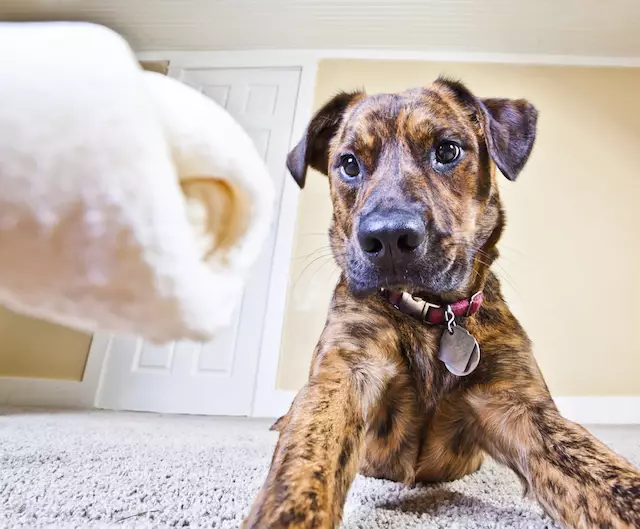Have you ever watched your dog snatch a treat from your hand, only to hurriedly retreat with a wary glance over their shoulder? This behavior can be puzzling and even feel like a personal rejection, but it’s essential to understand what drives it. Dogs, like all animals, are formed by millions of years of evolution, honing instincts that prioritize survival and resource protection. Your loyal companion’s seemingly secretive behavior regarding their prized treat is less about mistrust and more of an instinctual response deep-rooted in their ancestry.
In the wild, dogs—descendants of wolves—survive in packs where resources are often limited. They rely on teamwork for hunting and safety, yet must also guard their individual food, shelter, and security. Thus, the inclination to value high-priority resources—such as that irresistible chew bone you’ve just handed over—is a matter of survival. It’s not simply about the treat itself; it’s about the underlying behavioral economics that dictate how they interact with their environment and, by extension, with us.
The Value of Resources in Canine Behavior
When you offer your dog a high-value treat, it’s understandable to think that they recognize you as the generous provider. However, your dog’s evolutionary instincts often create a disconnect. To your canine friend, the item in question—be it a crunchy toy, a savory treat, or any desired possession—represents a critical resource that is potentially fleeting.
Why do certain items elicit such possessive behavior? The maxim “high value motivates” comes into play here. In dog training, we often deploy these high-value goodies to garner more enthusiastic responses, knowing that dogs are driven to seek out what they cherish most. Thus, when your dog seizes the treat and retreats, it’s a palpable reflection of their survival instincts kicking in. They instinctively want to protect their treasure from imagined competition, be it imaginary threats or their fellow canine companions.
Rather than a dismissal of your generosity, this act highlights a complex interplay of communication and instinct. The dog doesn’t disregard your role; they simply prioritize their inherent need to feel secure around valuable resources.
Personal Space and Privacy in Canine Minds
Interestingly, canines are wired to seek out safety when enjoying high-value items. Just like we humans may retreat to a quiet space to savor a delicious meal without interruptions, dogs exhibit a similar compulsion. Their instinctual need for privacy, especially when it comes to valuable resources, is crucial for their emotional well-being. This behavior provides them with reassurance that they won’t have to share their bounty, often leading them to hide or run off to a secluded area.
For a dog, this isn’t merely an act of possession; it’s a deeply ingrained survival strategy that has been essential for their ancestors’ existence. In essence, when your dog scurries away with their treat, they adopt a “finders keepers” mentality—essential for their evolution but not an affront to your role as their beloved owner.
Shifting Perspectives: Embracing a New Understanding
Acknowledging this behavior requires a shift in how we perceive our furry friends. It’s easy to feel slighted when your dog seems more concerned about their treat than acknowledging you. However, it’s vital to celebrate the fact that you have chosen such a valuable item that triggers these primal instincts. Rather than viewing their retreat as a rejection, see it as a testament to your successful selection of a special indulgence that resonates with their nature.
Moreover, recognizing that dogs are social animals inherently draws from both their need for companionship and their individualistic instincts can deepen the bond between owner and pet. Embracing your dog’s instinctual drive can lead to more effective training practices. Instead of seeing their behavior as a challenge to your authority, view it as an opportunity to develop a richer understanding of their world, thus becoming a more empathetic and informed guardian.
In this light, your status in their lives isn’t diminished; it’s rather amplified—it transforms into a relationship built on mutual respect, understanding, and the celebration of instincts that make dogs both fascinating and endearingly unpredictable.

